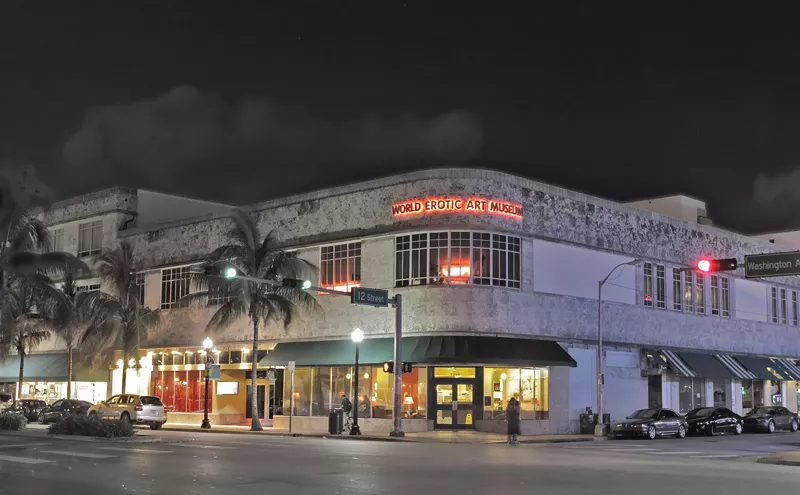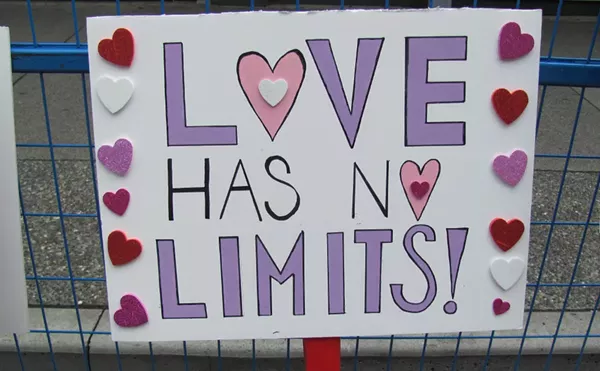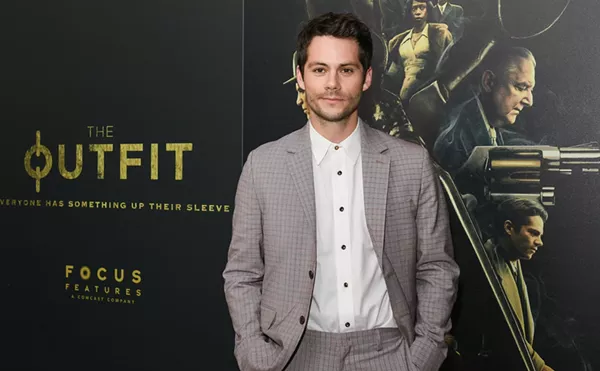Biographer Ron Chernow has risen to prominence due to his entertaining, all encompassing exploration of historical figures like John D. Rockefeller and Alexander Hamilton, both of which racked up book prizes and year-end 'best of' spots. His most recent book, Washington: A Life is billed as the first definitive cradle-to-grave biography of America's first president.
We talked with Chernow about George Washington's insecurities, relationship with slavery, and frayed bonds between the other founding fathers. He's speaking Sunday at the Miami Book Fair.
New Times: Why did you write this biography?
I thought I could present a fresh portrait of Washington. He was a very passionate man who kept these feelings hidden behind a very stoical and taciturn facade that we know so well. The other reason were the great monumental biographies on Washington written in the mid-twentieth century were all based on an older edition of his papers. I felt that nobody had taken the time to go through these new editions, which brings Washington into a new three-dimensional light. People have this image of him as a very worthy figure, to be sure, but also bland and if they were honest about it, boring.
You give a very detailed and nuanced look at his relationship with slavery.
The story of Washington and slavery is immensely complicated and often contradictory. A man born into a world in Virginia where slavery is commonplace, and he doesn't question it. Then, at the end of his life, in his will freeing those slaves under his direct control after his wife Martha's death. I really felt that it was not a trivial fact of this man's life that he owned 300 human beings. And it has always been said about Washington that he was a relatively benign slave master. I've always felt that praise came too trippingly off the tongue. On the positive side, he fed and housed his slaves adequately, gave them medical treatment. Unlike a lot of slave masters, he recognized slave marriages and families and tried not to break them up.
But I also discovered that while he was never a sadistic slave-master, he was a hard master. I talk about being quite shocked discovering some diary entries where he described the winter as one of the coldest on record in Virginia, so cold he said it was too cold to ride outside that weekend. But he was checking out with the overseers of his five farms making sure the slaves were out working in the cold, doing quite brutal labor. Washington was always trying to extract profit from this system. Before he found slavery immoral, he found it unprofitable, long before Karl Marx said the same thing, the slaves having no rationale reason to work hard for their master.
Washington seems to have a keen sense of aesthetics. Where do you think this fixation on his looks and how he was perceived came from? Insecurity or an understanding that he was a public figure?
Some of it stemmed from early insecurity. Washington was not born poor; his father not only owned fifty slaves and 10,000 acres but also numerous iron ore properties. He aspires to join Virginia high society, which he finally does due to his military service and marriage to Martha. But you can see him from the time he was a teenager studying to become a member of polite society. When he creates his personal guard he instructs his officers that members could not be shorter than five-foot-eight or taller than five-foot-ten. It's very odd because in this moment he is complaining about a shortage of manpower to Congress and being so finicky with the people who surround him.
He's surprisingly self-conscious about his teeth; always afraid that if people find out about his dental problems would mock him. When he corresponds with his dentists he does so with this kind of cloak and dagger air of secrecy. If they sent him a pair of dentures, he would never refer to the dentures or teeth, but the "items they sent him." These problems persist when he's president of the United States and the most famous person in the world, still haunted by this ancient anxiety.
It seems like the role of the presidency did a number on Washington financially.Yeah, this was a strange story of a man who was land and slave rich but cash poor. He had to borrow money to attend his own inauguration. Then by the end of his second term he had to borrow money to return to Virginia. Like all of the Virginia planters he was constantly in debt, buying luxury items from London on credit. Washington was a great consumer, a typical American in that way, having trouble controlling his urges to buy furniture and china.
By the end of his second term, Washington is emotionally isolated and disheartened by personal attacks.
It's interesting. President Washington, much like President Obama enters the office hoping for reasonable and sensible discourse, hoping to enjoy a period of nonpartisan politics. The two party system emerges rather rapidly from his own cabinet, Hamilton and Jefferson heading up separate wings. For two years there seems to be a political honeymoon for Washington due to his stature, but once the attacks start in the opposition, they are ferocious and relentless. Washington is accused of being everything from plotting to restore the monarchy to even being accused of being a British double agent all along during the Revolutionary War.
You wrote a New York Times Op-Ed piece in September about the Tea Party's use of our founding fathers' image. Did this motivate how or why you wrote this biography?
I didn't want to be pessimistic; I just wanted to give a more realistic image. Most Americans have this vision of a Golden Age, and certainly in ways it lived up to that. In a population of three million simultaneously active in American politics were Washington, Franklin, Hamilton, Adams, Madison, Jefferson, and Jay. They really were philosopher kings. The population now is a 100 times as large, and you would have difficulty naming one such figure. I wrote the book and the Op-Ed because I wanted to show that the founders, instead of handing down a set of opinions engraved in stone, handed down a series of political conflicts we still fight today.
In the 1790s, they were fighting state power over federal power, strict interpretation of the constitution versus a more liberal interpretation. So I wanted to fight the notion that there was a singular, monolithic opinion on these issues by the founders. The founders were a lively and opinionated bunch who rarely agreed on anything.
See Ron Chernow this Sunday at 11:30 a.m. at Miami Dade College's Chapman Conference Center (300 NE Second Avenue, Building 3, 2nd Floor, Room 3210, Miami). Admission is included with the $8 charge for the street fair. Visit miamibookfair.com. Check our full Miami Book Fair Guide here.












